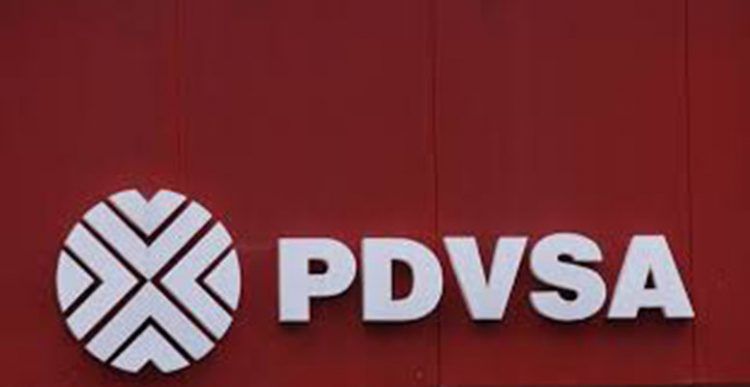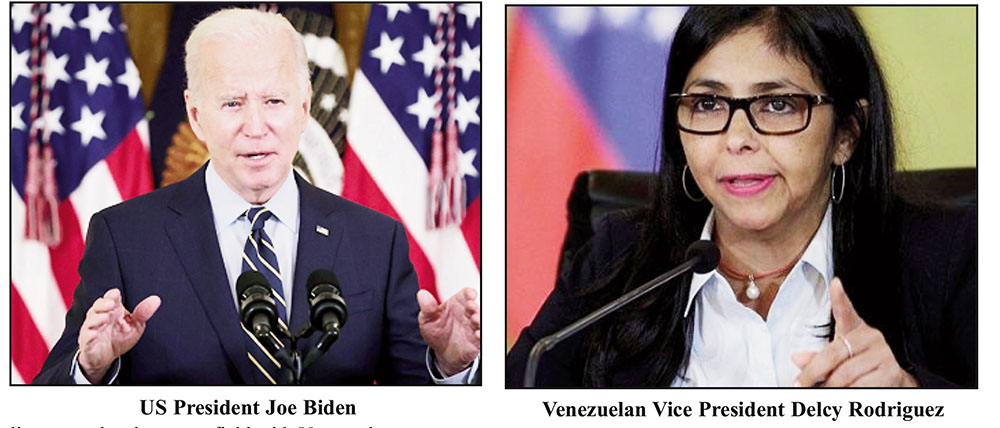Enduringly ‘cold’ relations between Washington and Caracas do not appear, at this time, to be impeding the United States’ preparations to commence the process for the issuing of limited licenses to oil companies possessing existing oil production and assets in the country over those now seeking to enter the country’s oil sector for the first time, according to a May 16 Reuters report. The U.S. is preparing to prioritize issuing limited licenses to operate in Venezuela to companies with existing oil production and assets over those seeking to enter the sanctioned OPEC nation for the first time, two people close to the discussions said.
The development, reportedly, has as its primary intention, creating openings that seek to encourage companies that have had oil and gas-related projects frozen under a long-standing US sanction regime to both “open new tabs” and, as well, to expand operations as the means through which “to expand operations, recoup pending debt and add oil to global markets.” Among the major global oil companies that are expected to take advantage of this opening are Italy’s Eni (ENI.MI), and Spain’s Repsol (REP.MC), with a view to recouping debts owed those companies by Venezuela and increase the volumes of oil on the global market. Washington, however, is reportedly mindful to avoid firms with no prior investments in Venezuela with a view to placing limits on the extent of the revenue which the Maduro administration can secure from the country’s oil industry.
 Other companies with long-standing oil related projects in Venezuela, including the United States company CHEVRON, and France’s Maurel & Prom (MAUP.PA), will be allowed to expand oil and gas production in Caracas. Caribbean Community (CARICOM) member country, Trinidad and Tobago as well as Shell have also secured clearance from Washington to develop the Dragon Gas Field in Venezuela. The OPEC-member nation Trinidad & Tobago also last year received a U.S. license to develop a gas field with Venezuela.
Other companies with long-standing oil related projects in Venezuela, including the United States company CHEVRON, and France’s Maurel & Prom (MAUP.PA), will be allowed to expand oil and gas production in Caracas. Caribbean Community (CARICOM) member country, Trinidad and Tobago as well as Shell have also secured clearance from Washington to develop the Dragon Gas Field in Venezuela. The OPEC-member nation Trinidad & Tobago also last year received a U.S. license to develop a gas field with Venezuela.
The new arrangement demonstrates that Washington retains a significant measure of control over the purse strings of Venezuela though there are suggestions that high global oil demand will give rise to some measure of flexibility to Washington’s existing tight hold on Venezuela’s oil exports. This, notwithstanding reports that oil companies like India’s Reliance Industries (RELI.NS) is expected to open a ‘new tab’ in Venezuela while other countries are likely to come knocking on Venezuela’s door as soon as the ‘green light’ to resume operations is given. The unraveling of the previous arrangements for foreign oil companies to ‘do deals’ with Caracas, with Washington’s blessing, occurred after Washington had determined that Venezuela had failed to fully meet its promises to secure a competitive presidential election.
Venezuela’s Oil Minister Pedro Tellechea has reportedly sounded an upbeat note regarding the now existing status quo, reportedly saying that the US position would allow many foreign firms to expand joint ventures with PDVSA, while new partners could start fresh projects seeking capital, though the exemptions under consideration will reportedly remove the opportunity for Venezuela to use long-standing partners like PDVSA to expand the nation’s crude production in the near term.
Venezuela’s oil exports had reportedly climbed to around 900,000 barrels per day in March, prior to Washington moving to not renew the license that had been linked to the Caracas’ reported undertakings. Venezuela’s Vice President Delcy Rodriguez earlier this week reportedly harshly criticized the impact of U.S. sanctions of the past five years asserting that the move had reportedly cut billions of dollars from Venezuela’s GDP. “It is an international embarrassment that in the 21st century … the aim is to subjugate countries through the mechanism of economic sanctions,” the Venezuelan Vice President was quoted as saying during a recent forum in the country’s capital.








